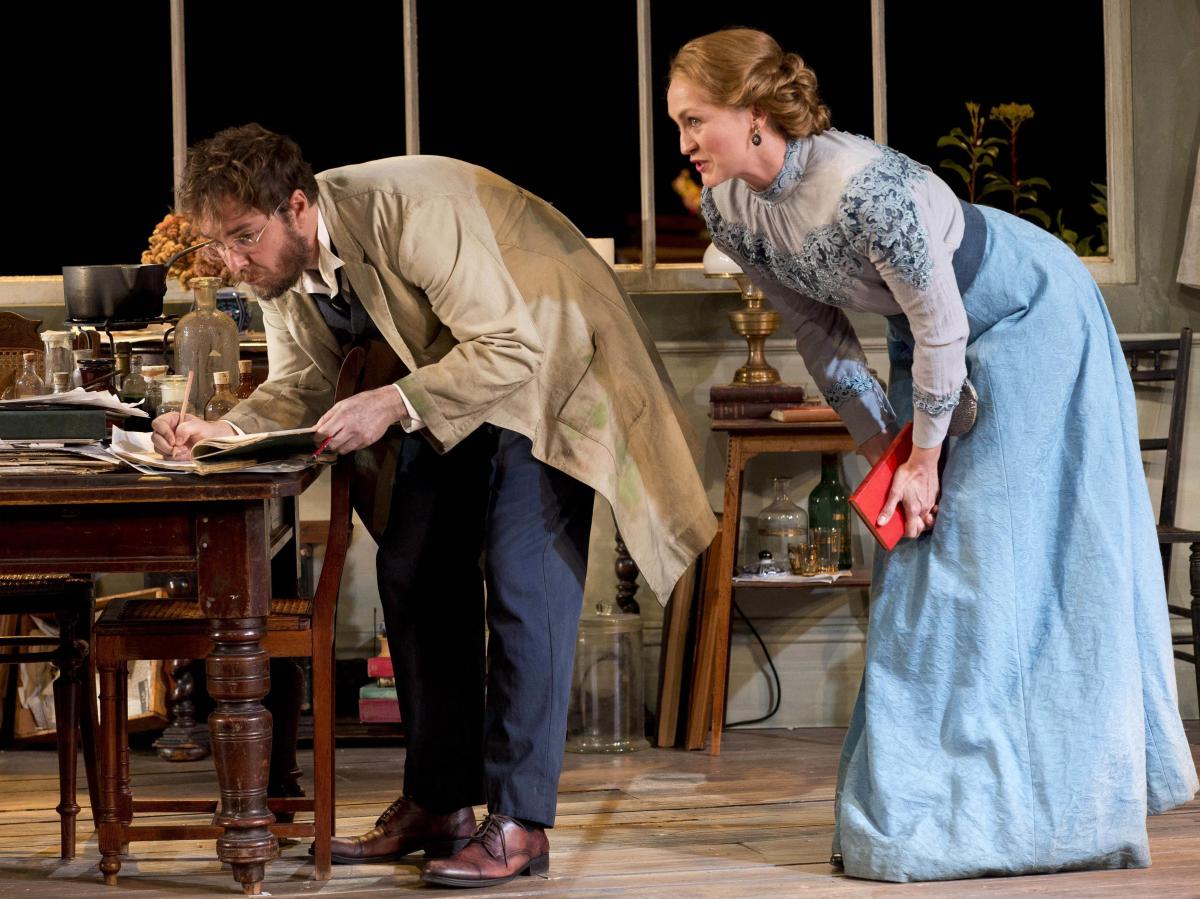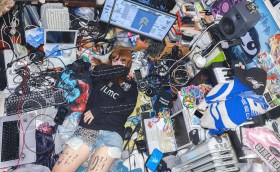Toby Truslove and Helen Thomson. Image by Brett Boardman.
Russian playwright Maxim Gorky’s Children of the Sun is about revolutions – the orbits of family members, and their satellites, and the cataclysmic social revolutions that inexorably alter those orbits.
Gorky wrote the play in 1905 and set it in 1860. Costume designer Renée Mulder’s exquisite period costumes appear to have updated the play to pre-1917, while adaptor Andrew Upton’s highly modernised language brings it straight into the present. It seems Kip Williams’ production is having an identity crisis, but that’s simply in keeping with the theme.
Children of the Sun revolves around Protasov – a self-described brilliant scientist certain he’s on the verge of changing the world. Meanwhile, his family, friends and employees orbit in random, zig-zag patterns around this highly remote sun, each disconnected from the other, and from reality.
David Fleischer’s fractured set perfectly captures their dysfunctional relationships. On a revolving stage, isolated doors and tiny corners of rooms lie disjointedly around an empty centre. It’s a delicate, impressionistic portrayal of characters who are unable to comprehend each other.
A few outsiders enter this house on a daily basis, attempting to become enmeshed in the family’s tangled web; attempting to create relationships in a family seemingly incapable of relatedness. Protasov and Yelena’s marriage – comedically and tragically portrayed by Toby Truslove and the luminous Justine Clarke – is the epitome of a dysfunctional relationship, a relationship the comically egotistical artist, Vageen (Hamish Michael), and the hilarious Melaniya (Helen Thomson) are determined to break up.
Melaniya’s brother – local vet Boris (Chris Ryan) – is desperate to win Protasov’s sister Liza (Jacqueline McKenzie), whose beauty and extreme sensitivity have completely captivated him, although he is utterly unable to comprehend her. McKenzie’s complex portrayal of Liza is a tour de force. Constantly on the brink of a nervous breakdown, Liza avows she is being driven mad, not by her imagination, but by her alarming ability to see a reality to which the others are obstinately blind.
For, despite the numerous comic seduction scenes, the reality behind Children of the Sun is a highly serious one. Eventually, even Protasov must cease to brush off the outside world as full of superstitious ignorance, but not before his superiority complex brings about the destruction of everything he doesn’t realise he holds dear.
When, in the midst of composer Max Lyandvert’s subtle and emotive sound design, a piercing note beings to sound, we know it heralds the breakdown of the comedy that has lightened the sense of impending doom, and that that doom has arrived.
Rating: 4 ½ out of 5 starsChildren of the Sun
Sydney Theatre Company
By Maxim Gorky
In a new adaptation by Andrew Upton
Director: Kip Williams
Set Design: David Fleischer
Costume Design: Renée Mulder
Lighting Design: Damien Cooper
Composer & Sound Designer: Max Lyandvert
Drama Theatre, Sydney Opera House
www.sydneytheatre.com.au
Until 25 October






